
Charming Chittagong: The Gateway to the Hill Tracts
Chittagong, Bangladesh's second-largest city, is a mesmerizing blend of natural beauty, historical landmarks, and bustling urban life. Nestled between the Bay of Bengal and the Chittagong Hill Tracts, this city offers a unique combination of scenic beaches, lush green hills, and vibrant culture. Start your journey with a visit to Patenga Beach, where the waves of the Bay of Bengal gently kiss the shore. It's a perfect spot to relax, watch the sunset, and enjoy some local seafood. For those intrigued by history, the Ethnological Museum provides a fascinating insight into the diverse ethnic groups of Bangladesh. For a touch of adventure, head to the nearby hill tracts. The verdant hills and serene lakes, such as Kaptai Lake, are perfect for trekking, boating, and exploring tribal culture. Don't miss the chance to visit the serene Buddhist temples in the area, such as the Buddha Dhatu Jadi, also known as the Golden Temple. Back in the city, the bustling markets like the Chittagong Fishery Ghat offer a glimpse into the daily lives of locals. Here, you can find fresh seafood, spices, and handmade crafts. The city is also known for its delicious street food, so be sure to try some local delicacies like Panta Ilish and Chingri Malai Curry. Chittagong is not just a city; it's an experience. From its natural beauty to its rich cultural tapestry, there's something for every traveler in this captivating city.
Local tips in Chittagong
- Visit Patenga Beach early in the morning to avoid the crowds and enjoy a peaceful sunrise.
- Wear comfortable shoes if you plan to explore the hill tracts, as the terrain can be challenging.
- Try the local street food but ensure it's from a clean and reputable vendor to avoid any stomach issues.
- Always ask for permission before taking photos of local people, especially in tribal areas.
- Carry some cash, as not all places accept credit cards, especially in more remote areas.
Charming Chittagong: The Gateway to the Hill Tracts
Chittagong, Bangladesh's second-largest city, is a mesmerizing blend of natural beauty, historical landmarks, and bustling urban life. Nestled between the Bay of Bengal and the Chittagong Hill Tracts, this city offers a unique combination of scenic beaches, lush green hills, and vibrant culture. Start your journey with a visit to Patenga Beach, where the waves of the Bay of Bengal gently kiss the shore. It's a perfect spot to relax, watch the sunset, and enjoy some local seafood. For those intrigued by history, the Ethnological Museum provides a fascinating insight into the diverse ethnic groups of Bangladesh. For a touch of adventure, head to the nearby hill tracts. The verdant hills and serene lakes, such as Kaptai Lake, are perfect for trekking, boating, and exploring tribal culture. Don't miss the chance to visit the serene Buddhist temples in the area, such as the Buddha Dhatu Jadi, also known as the Golden Temple. Back in the city, the bustling markets like the Chittagong Fishery Ghat offer a glimpse into the daily lives of locals. Here, you can find fresh seafood, spices, and handmade crafts. The city is also known for its delicious street food, so be sure to try some local delicacies like Panta Ilish and Chingri Malai Curry. Chittagong is not just a city; it's an experience. From its natural beauty to its rich cultural tapestry, there's something for every traveler in this captivating city.
When is the best time to go to Chittagong?
Iconic landmarks you can’t miss
পতেঙ্গা সমুদ্র সৈকত
Experience the beauty of where the Karnaphuli River meets the Bay of Bengal at this popular beach near Chattogram, Bangladesh.
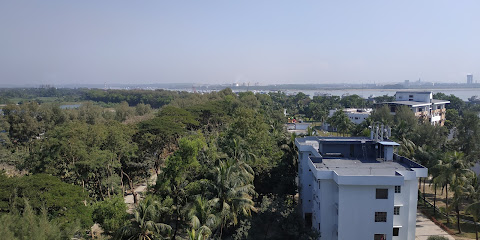
Biplob Udyan
Explore Biplob Udyan in Chattogram: A historical park offering a green escape, cultural experiences, and a tribute to Bangladesh's independence struggle.
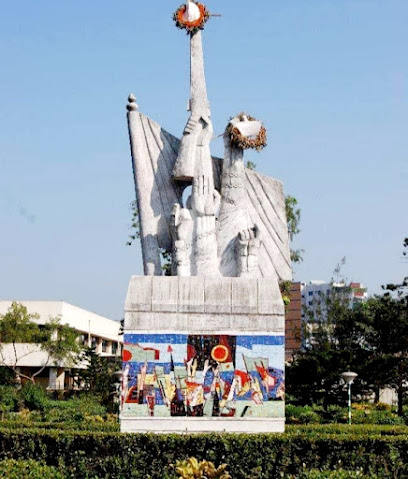
Shadhinata Complex
Explore Bangladesh's iconic landmarks in miniature at Shadhinata Complex, a vibrant theme park offering a cultural journey through history.
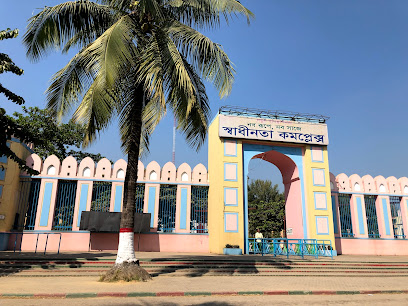
Abhay Mitra Ghat
Experience the tranquility of Chattogram at Abhay Mitra Ghat, a scenic riverside retreat with rich cultural heritage and stunning views.
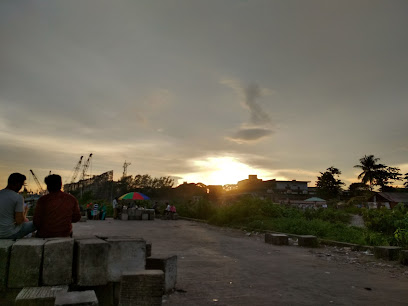
Cheragi Pahar Square
Experience the vibrant heart of Chattogram's art, culture, and history at Cheragi Pahar Square, a must-visit landmark for every traveler.
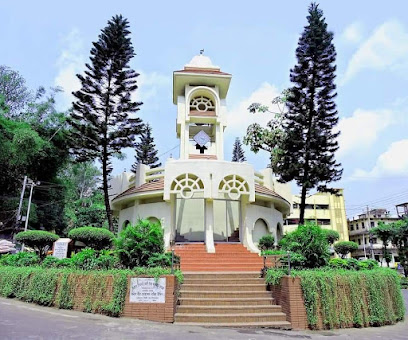
Sultanul Arefeen Hazrat Bayezid Bostami (R.A) Dargah Sharif
Discover a revered Sufi shrine in Chattogram, blending history, spirituality, and unique traditions in a serene and culturally rich setting.
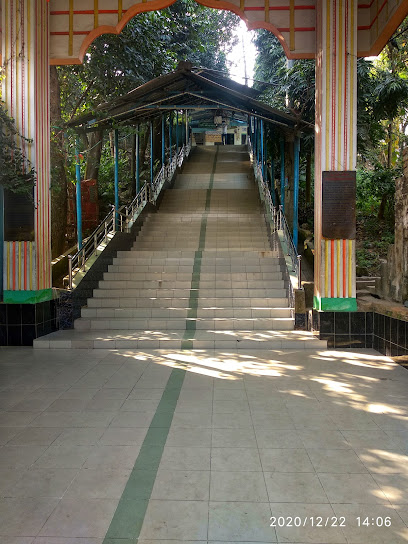
Chandanpura Masjid
Experience the vibrant Chandanpura Masjid in Chattogram, a Mughal-inspired architectural gem with colorful domes and intricate designs, a true feast for the eyes.
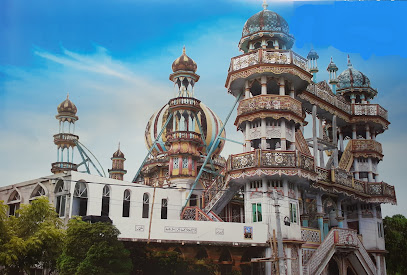
Muradpur More
Explore Muradpur More in Chattogram: A vibrant landmark offering a rich tapestry of history, culture, and local life in Bangladesh.
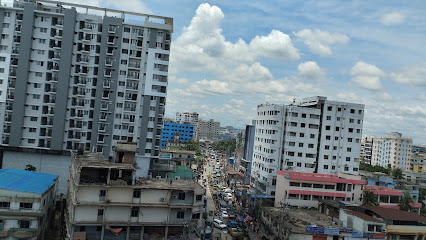
Ethnological Museum
Explore the vibrant cultural heritage of Bangladesh's diverse ethnic groups at Chattogram's Ethnological Museum.
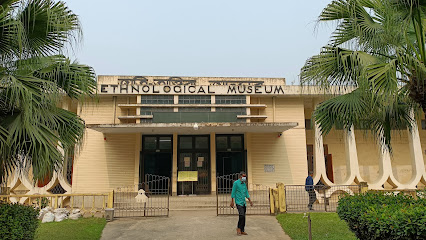
Zia Memorial Museum
Explore the life and legacy of President Ziaur Rahman at this historical museum in Chattogram, Bangladesh. A journey through Bangladesh's past.
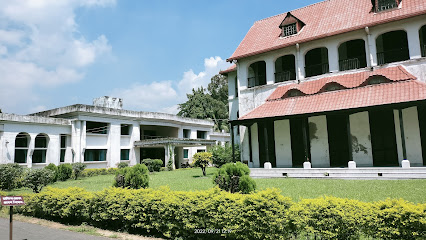
Sree Sree Chatteshwari Kali Temple
Discover the spiritual heart of Chattogram at Sree Sree Chatteshwari Kali Temple, a revered Shakti Peetha with rich history and vibrant traditions.
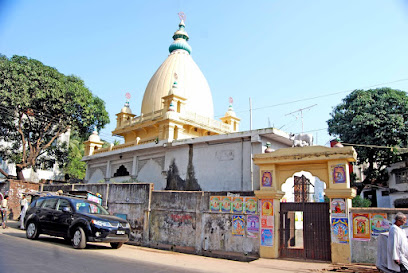
Chittagong War Cemetery
A peaceful memorial in Chattogram honoring the fallen heroes of World War II, offering a serene space for reflection and remembrance.
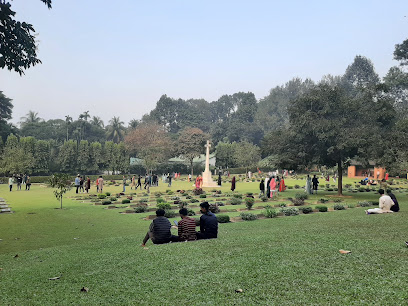
মাদারবাড়ী রেল গেট
Explore মাদারবাড়ী রেল গেট in Chattogram: A historical landmark showcasing the city's railway heritage and colonial-era architecture on Dhaka Trunk Road.
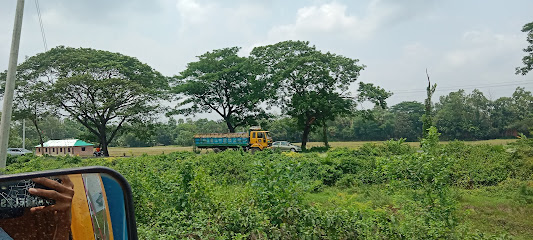
Naval, Patenga
Experience the unique blend of maritime activity and coastal serenity at Naval, Patenga, Chattogram. Stunning views, fresh seafood, and cultural vibrancy await!
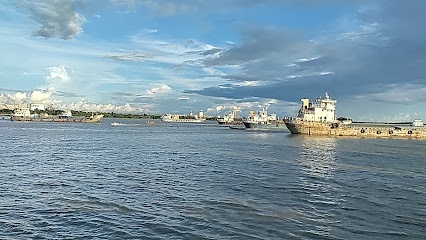
Nazrul Square, DC Hill
A vibrant hilltop park in Chattogram, honoring the national poet Kazi Nazrul Islam and hosting cultural celebrations.
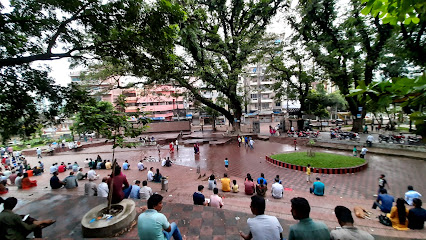
Unmissable attractions to see
পতেঙ্গা সমুদ্র সৈকত
Experience the beauty of where the Karnaphuli River meets the Bay of Bengal, with stunning sunsets and a lively atmosphere at Patenga Sea Beach.
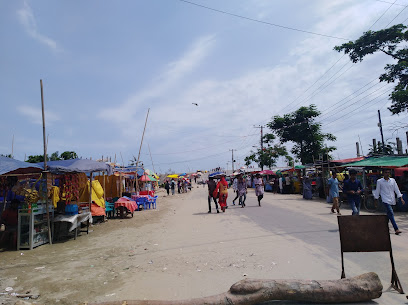
Biplob Udyan
Explore Biplob Udyan in Chattogram: A historical park offering a green escape and cultural experiences, commemorating Bangladesh's independence struggle.
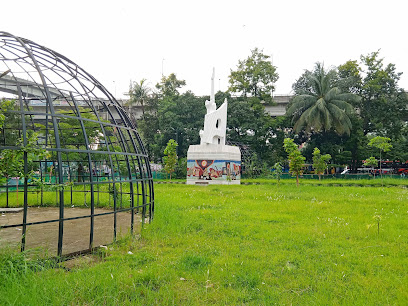
Patenga Sea Beach
Discover Patenga Sea Beach: Where the Karnaphuli River meets the Bay of Bengal, offering stunning sunsets and vibrant local culture.
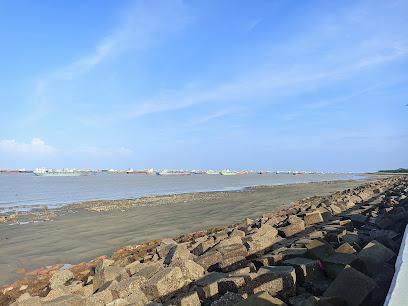
Shadhinata Complex
Explore Bangladesh's iconic landmarks in miniature at Shadhinata Complex, Chattogram – a vibrant theme park offering cultural insights and amusement for all ages.
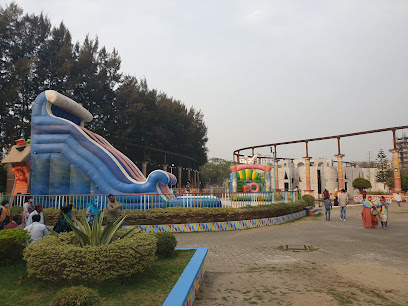
Sunset Point, Bhatiari
Experience breathtaking sunset views and tranquil natural beauty at Sunset Point, Bhatiari – a peaceful escape near Chittagong.
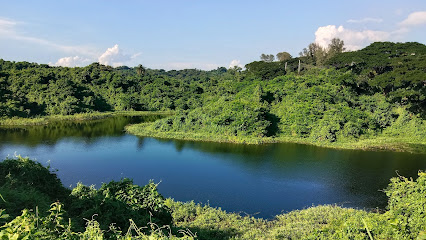
Chattogram Shishu Park
Experience joy and adventure at Chattogram Shishu Park, a perfect family destination with rides, gardens, and cultural entertainment near M A Aziz Stadium.
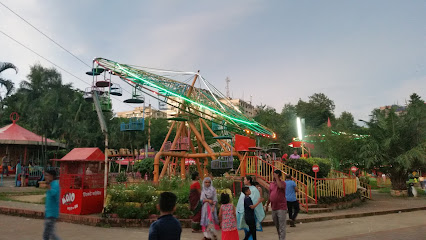
Butterfly Park Bangladesh
Discover a vibrant world of fluttering colors and natural beauty at Butterfly Park Bangladesh, a unique tropical garden in Chattogram.
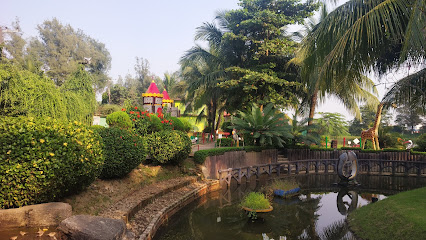
Hillview Park & Cafe
Escape to Hillview Park & Cafe in Chattogram: A serene oasis of natural beauty and recreational fun for a perfect family day out.
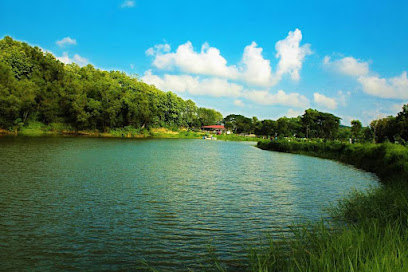
Ethnological Museum
Discover Bangladesh's diverse cultural heritage at the Ethnological Museum, showcasing the traditions and lifestyles of numerous ethnic groups.
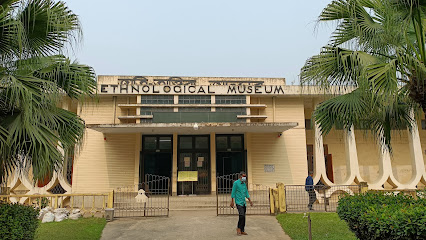
Zia Memorial Museum
Explore the life and legacy of President Ziaur Rahman at this historical museum in Chattogram, offering insights into Bangladesh's past.
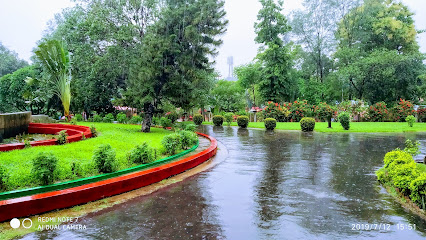
Laldighi Park
Discover Laldighi Park in Chattogram: A historical landmark offering a tranquil escape, cultural events, and a glimpse into the city's rich heritage.
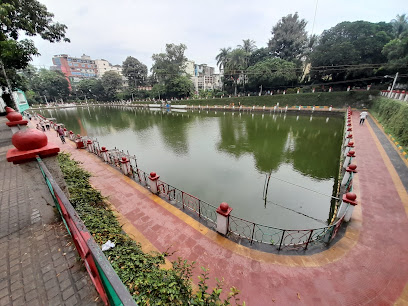
Naval Sea Beach
Experience tranquility at Naval Sea Beach in Chattogram: stunning sunsets, maritime views, and a serene atmosphere await. A unique coastal escape!
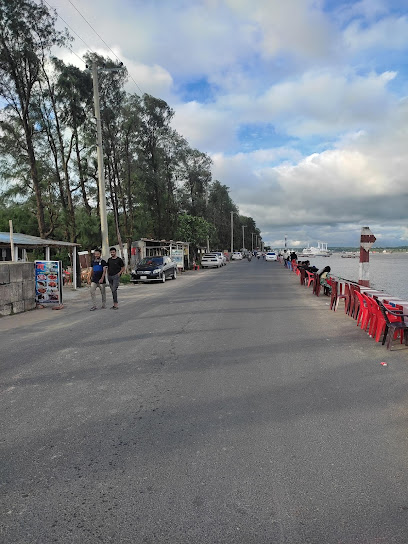
Khejurtala Sea Beach
Discover Khejurtala Sea Beach: A serene coastal escape near Chattogram with golden sands, tranquil waters, and unique naval views.
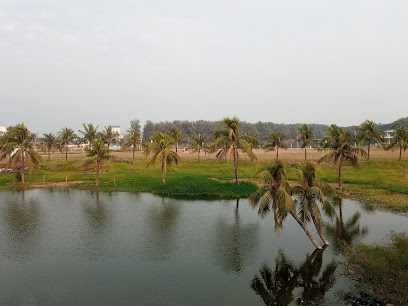
Halishahar Beach
Escape to Halishahar Beach in Chattogram for a serene coastal experience, stunning sunsets, and a glimpse into the region's maritime activity.
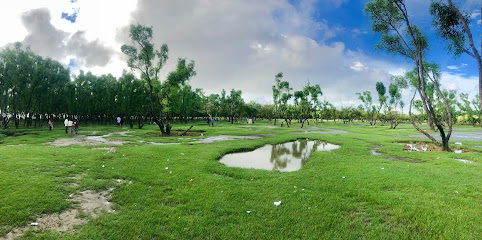
Nazrul Square, DC Hill
Discover Chattogram's cultural heart at Nazrul Square, a hilltop haven honoring the rebel poet Kazi Nazrul Islam, offering panoramic views and a tranquil escape.
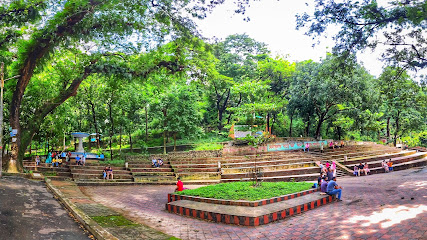
Essential places to dine
Handi Restaurant
Discover authentic Indian flavors at Handi Restaurant in Chattogram—where every dish tells a story.
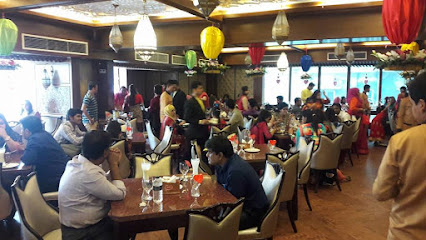
Barcode Cafe
Experience the best of Bangladeshi cuisine at Barcode Cafe, where every meal tells a story of flavor and warmth.
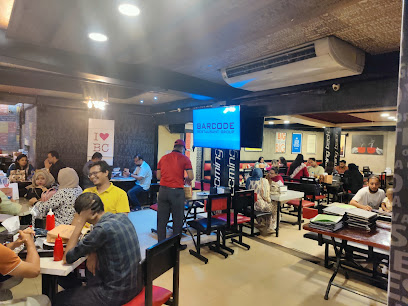
Bir Chattala
Experience authentic Bangladeshi cuisine at Bir Chattala in Chattogram – where tradition meets taste!
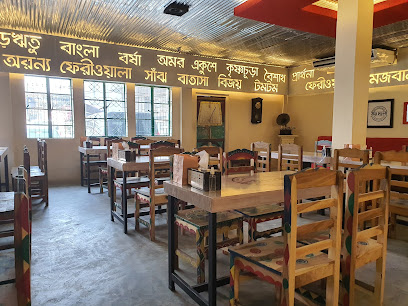
Cafe Milano
Discover Cafe Milano in Chattogram: A charming cafe serving exquisite continental cuisine perfect for families and food enthusiasts.
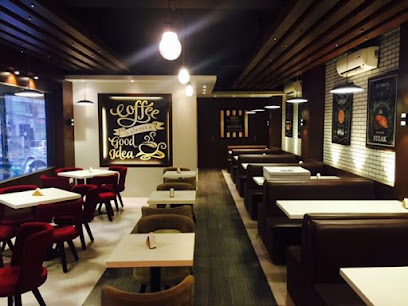
Ambrosia Restaurant Ltd
Discover family-friendly dining at Ambrosia Restaurant Ltd in Chattogram, where local and international cuisines meet in an inviting atmosphere.
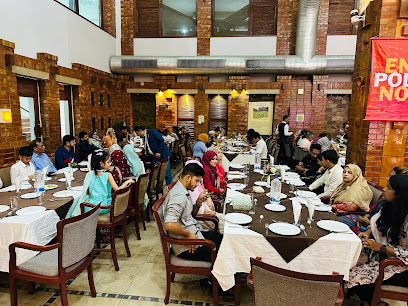
Bonjour
Discover the exquisite flavors of fine dining at Bonjour in Chattogram—where every meal is a celebration of culinary excellence.
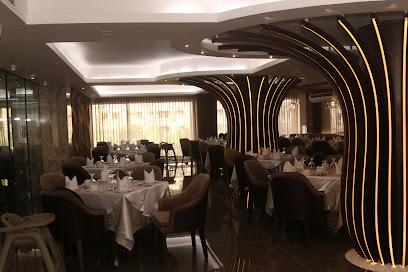
Dawat Multi Cuisine Restaurant
Experience the rich flavors of Bangladesh at Dawat Multi Cuisine Restaurant in Chattogram - where tradition meets taste.
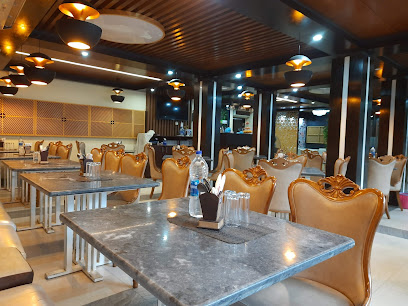
Lemongrass Restaurant
Experience the rich flavors of Southeast Asia at Lemongrass Restaurant in Chattogram - where every dish tells a story.
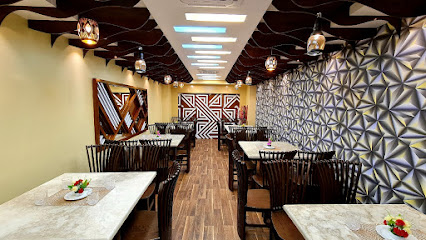
Mejjainna Bari
Discover authentic Bangladeshi cuisine at Mejjainna Bari – A family-friendly restaurant in the heart of Chattogram offering diverse and flavorful dishes.
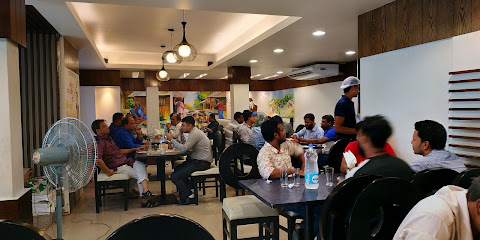
Wind of Change - Rooftop Restaurant & Lounge
Discover culinary delights and stunning city views at Wind of Change - Rooftop Restaurant & Lounge in Chattogram.
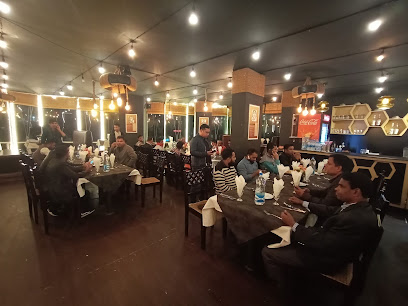
The Arrosto
Experience culinary excellence at The Arrosto in Chattogram—where local flavors meet international cuisine.
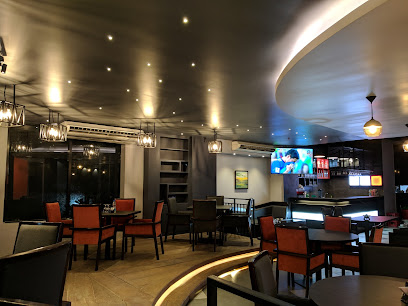
Meridian Hotel & Restaurant
Experience exceptional dining and hospitality at Meridian Hotel & Restaurant in Chattogram – where local flavors meet international cuisine.

Little Asia
Experience the best of Asian cuisine at Little Asia in Chattogram - perfect for families seeking delicious meals together.
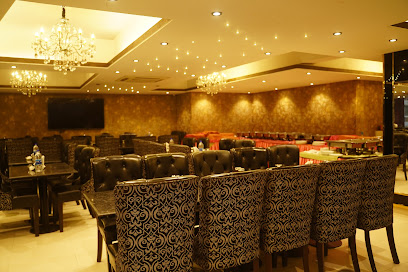
Lake Dine Restaurant
Discover Lake Dine Restaurant: Where Delicious Cuisine Meets Scenic Views in Chattogram.
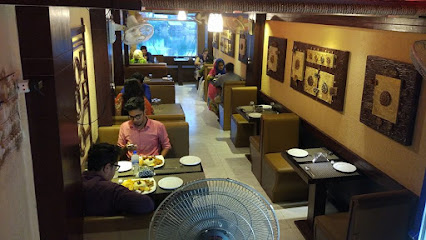
Errante
Experience exquisite dining at Errante in Chattogram—where local flavors meet modern culinary artistry amidst stunning rooftop views.
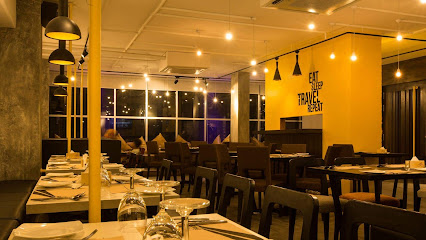
Markets, malls and hidden boutiques
Sanmar Ocean City
Experience the vibrant shopping scene and local culture at Sanmar Ocean City, a premier destination in Chattogram for tourists seeking retail therapy.
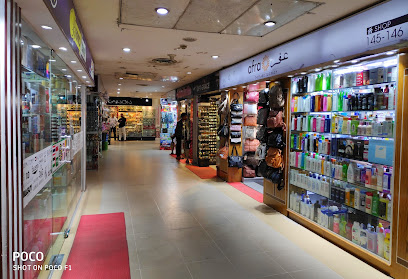
Finlay Square
Explore Finlay Square in Chattogram, a vibrant shopping mall offering diverse stores, dining options, and entertainment for an unforgettable experience.
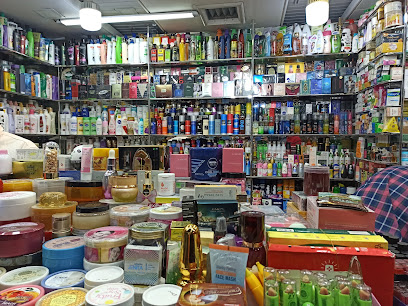
Afmi Plaza
Explore Afmi Plaza: the ultimate shopping and dining destination in Chattogram, where local culture meets modern convenience.
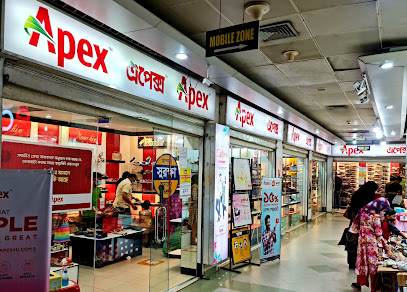
Khulshi Town Center
Discover the vibrant Khulshi Town Center in Chattogram, a shopping haven filled with trendy boutiques, dining options, and family-friendly entertainment.
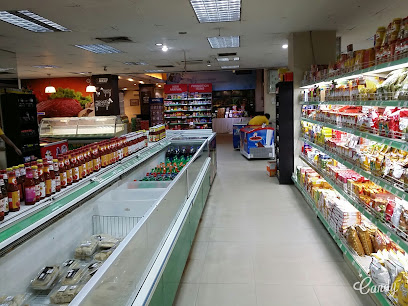
Chittagong Shopping Complex
Discover the vibrant Chittagong Shopping Complex, where fashion meets local culture in the heart of Chattogram.
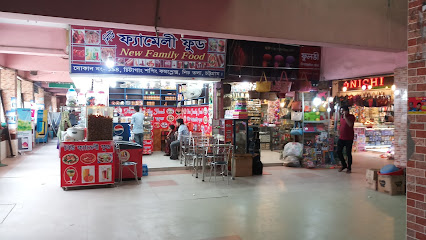
MIMI SUPER MARKET
Discover the vibrant shopping experience at Mimi Super Market in Chattogram, offering everything from local delicacies to trendy fashion.
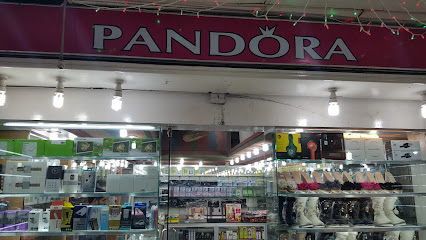
ARTISAN CHITTAGONG
Discover the vibrant essence of Chattogram fashion at Artisan Chittagong, where local culture meets contemporary style in a stunning clothing store.
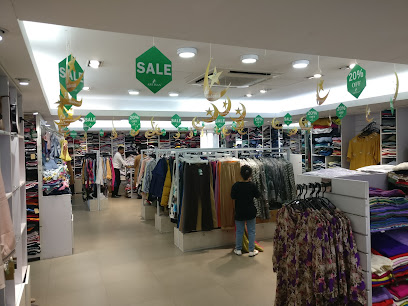
Gift Gallery
Explore the vibrant Gift Gallery in Chattogram for unique souvenirs and local crafts that reflect the rich culture of Bangladesh.
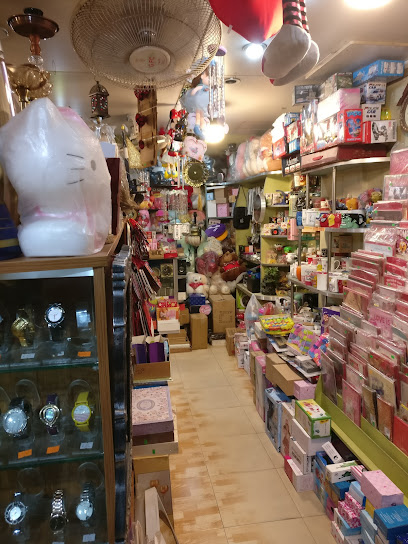
Priya Store
Experience local flavors and everyday life at Priya Store, a charming grocery haven in the heart of Chattogram.
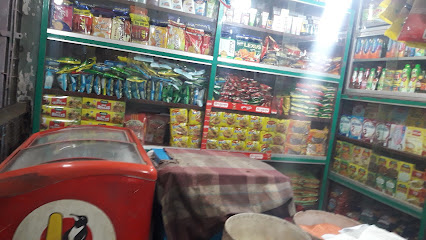
Bangla Mart
Explore Bangla Mart in Chattogram for an unparalleled shopping experience featuring clothing, fashion accessories, and delicious local dry fruits.
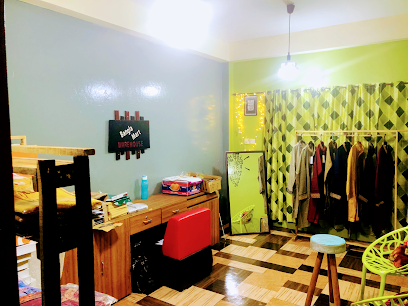
Chittagong Shari House
Discover the elegance of traditional women's clothing at Chittagong Shari House, where exquisite sarees celebrate Bangladeshi heritage.
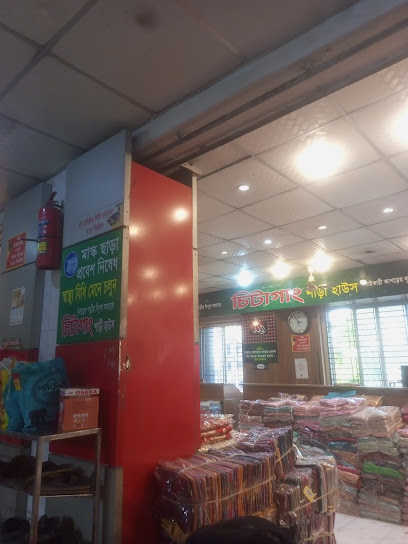
Partho Store
Explore Partho Store in Chattogram - a charming general store offering local delights and a taste of Bangladeshi culture.

Nipa Fashion & Boutiques
Explore Nipa Fashion & Boutiques in Chattogram for trendy clothing and cosmetics that reflect local culture and style.

Best Gift Shop : Birthday, Wedding, Party Gift & Accessories
Explore Chattogram's best gift shop for unique and thoughtful presents, from birthday to wedding gifts and everything in between.
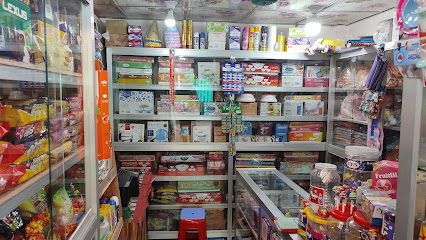
Super shop
Discover the bustling Super Shop in Chattogram - a department store brimming with local treasures and modern finds for every traveler.
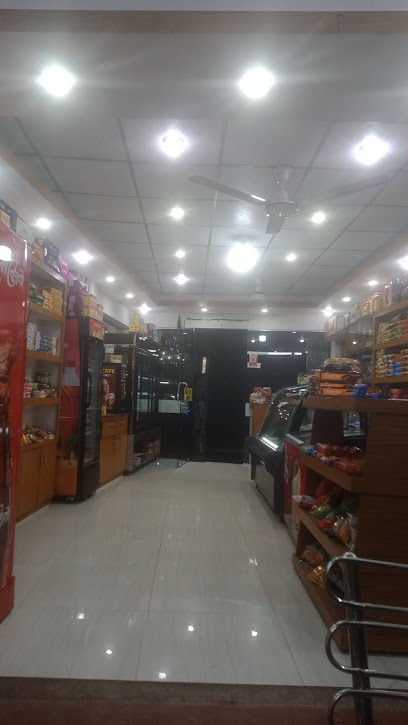
Essential bars & hidden hideouts
Wind of Change - Rooftop Restaurant & Lounge
Enjoy exquisite dining and stunning views at Wind of Change Rooftop Restaurant & Lounge in Chattogram, perfect for a unique culinary experience.
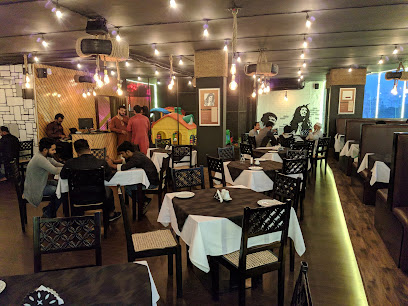
The Hide Out - Lounge & Game Zone
Discover the perfect blend of relaxation and entertainment at The Hide Out - Lounge & Game Zone in Chattogram, where fun meets comfort.
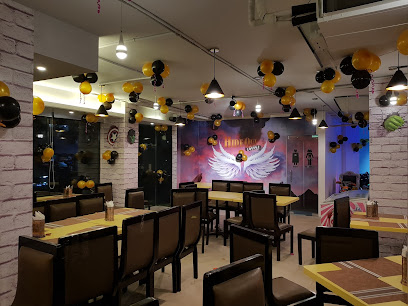
The Railway Mens Stores Limited Restaurant And Bar
Discover the vibrant atmosphere and delicious flavors of The Railway Mens Stores Limited Restaurant And Bar in Chattogram, a must-visit for every traveler.
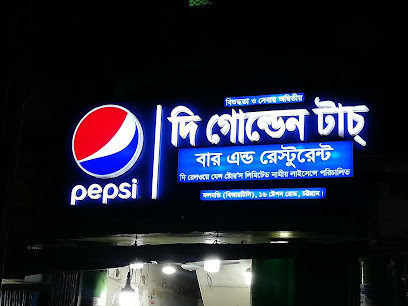
Baikal Lounge
Discover the lively ambiance and exquisite cocktails at Baikal Lounge, the ultimate nightlife destination in Chattogram, Bangladesh.
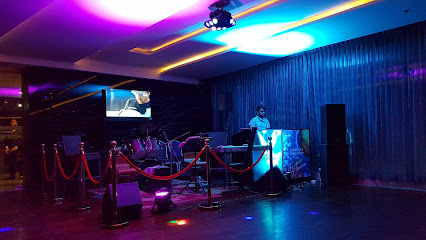
BPC Bar
Discover the vibrant nightlife of Chattogram at BPC Bar, where great drinks and a lively atmosphere come together for an unforgettable experience.
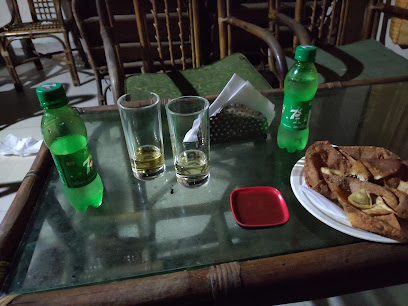
Hotel Shaikat Bar
Discover the vibrant atmosphere of Hotel Shaikat Bar in Chattogram, a perfect spot for refreshing drinks and local flavors.
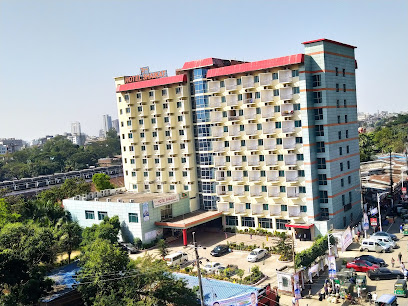
Sports Lounge
Experience the thrill of live sports in Chattogram's vibrant Sports Lounge, where great food and camaraderie meet.
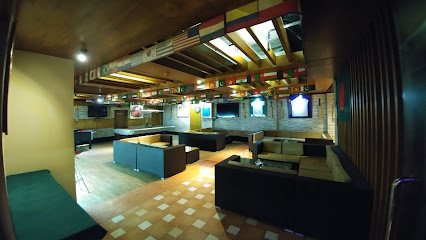
Flamingo Cafe
Discover the perfect blend of relaxation and flavor at Flamingo Cafe in Chattogram, where delightful cuisine meets a vibrant bar atmosphere.
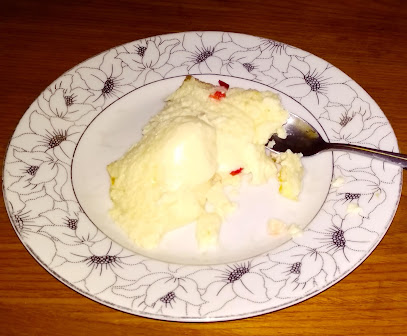
Hong Kong Chinese Restaurant and Bar
Discover the authentic flavors of China at Hong Kong Chinese Restaurant and Bar in Chattogram, where vibrant nightlife meets exquisite dining.
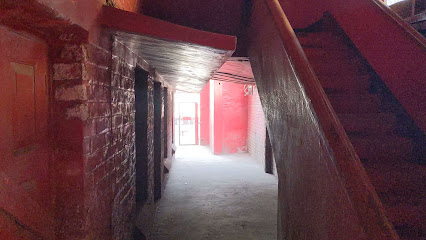
Knightriders Juice & Coffee Bar
Discover Chattogram's vibrant local flavor at Knightriders Juice & Coffee Bar, where refreshing drinks and cozy ambiance await.
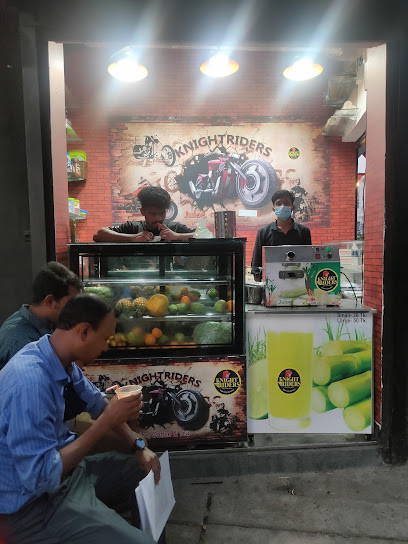
Sujon
Experience the vibrant nightlife of Chattogram at Sujon, a lively bar offering a mix of local flavors and cocktails in a welcoming atmosphere.
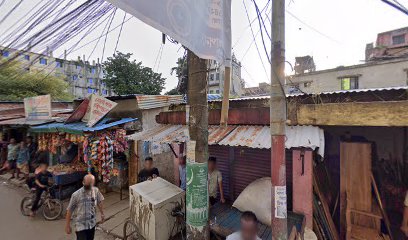
ফিউশন ক্যাফে চকবাজার
Experience the vibrant nightlife at Fusion Cafe in Chawk Bazar, where traditional flavors meet modern drinks in a lively atmosphere.
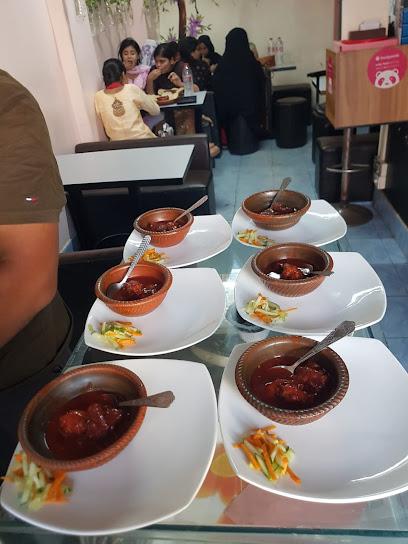
Moja
Experience the vibrant nightlife at Moja, Chattogram's premier bar, where refreshing drinks and lively ambiance meet local culture.
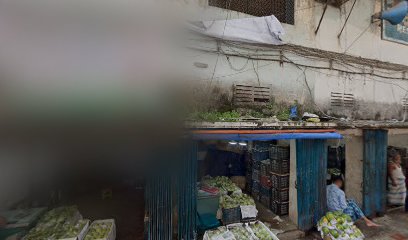
Bal sop
Experience the vibrant nightlife at Bal Sop in Chattogram, where great drinks and a lively atmosphere await you.
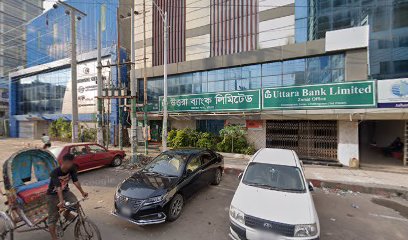
স্বাধীন যমুনা পটভূমি
Discover the lively ambiance and refreshing drinks at স্বাধীন যমুনা পটভূমি in Chattogram, a perfect blend of local culture and nightlife.
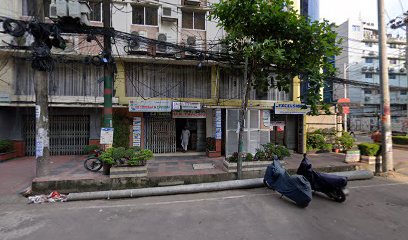
Local Phrases
-
- Helloহ্যালো
[hyalo] - Goodbyeবিদায়
[bidae] - Yesহ্যাঁ
[hya] - Noনা
[na] - Please/You're welcomeদয়া করে
[doya kore] - Thank youধন্যবাদ
[dhonobad] - Excuse me/Sorryদুঃখিত
[dukhit] - How are you?কেমন আছেন?
[kemon achen?] - Fine. And you?ভালো। আর তুমি?
[bhalo. ar tumi?] - Do you speak English?আপনি ইংরেজি কথা বলতে পারেন?
[apni English kotha bolte paren?] - I don't understandআমি বুঝিনা
[ami bujhina]
- Helloহ্যালো
-
- I'd like to see the menu, pleaseআমি মেনু দেখতে চাই
[ami menu dekhte chai] - I don't eat meatআমি মাংস খাই না
[ami mangsh khai na] - Cheers!চিয়ার্স!
[cheers!] - I would like to pay, pleaseআমি দিতে চাই
[ami dite chai]
- I'd like to see the menu, pleaseআমি মেনু দেখতে চাই
-
- Help!সাহায্য!
[sahayyo!] - Go away!চলে যাও!
[chole jao!] - Call the Police!পুলিস কল করুন!
[police kol korun!] - Call a doctor!ডাক্তার কল করুন!
[doctor kol korun!] - I'm lostআমি হারানো
[ami harano] - I'm illআমি অসুস্থ
[ami osustho]
- Help!সাহায্য!
-
- I'd like to buy...আমি ... কিনতে চাই
[ami ... kinte chai] - I'm just lookingআমি শুধু দেখছি
[ami shudhu dekhchi] - How much is it?এটা কত টাকা?
[eta koto taka?] - That's too expensiveএটা খুব বাজে
[eta khub baje] - Can you lower the price?দাম কমাতে পারবেন?
[dam kamate parben?]
- I'd like to buy...আমি ... কিনতে চাই
-
- What time is it?এখন কতটা?
[ekhon kotta?] - It's one o'clockএকটা বাজে
[ekta baje] - Half past (10)(10) এর পর্দ্ধে
[(10) er porthe] - Morningসকাল
[shokal] - Afternoonদুপুর
[dupur] - Eveningসন্ধ্যা
[shondhya] - Yesterdayগতকাল
[gotkal] - Todayআজ
[aj] - Tomorrowআগামীকাল
[agamikal] - 1এক
[ek] - 2দুই
[dui] - 3তিন
[tin] - 4চার
[char] - 5পাঁচ
[pach] - 6ছয়
[shoi] - 7সাত
[shat] - 8আট
[at] - 9নয়
[noy] - 10দশ
[dash]
- What time is it?এখন কতটা?
-
- Where's a/the...?...কোথায়?
[...kothay?] - What's the address?ঠিকানা কি?
[thikana ki?] - Can you show me (on the map)?আপনি আমাকে (ম্যাপে) দেখাতে পারবেন?
[apni amake (map-e) dekhate parben?] - When's the next (bus)?পরের (বাস) কখন?
[porer (bus) kohon?] - A ticket (to ....)একটি টিকেট (.... এ)
[ekti ticket (.... e)]
- Where's a/the...?...কোথায়?
History of Chittagong
-
Chittagong, known historically as Chatgaon, has roots that date back to ancient times. It was a major port city and a thriving commercial hub in the ancient Bengal region. Evidence of early settlements and trade routes can be traced back to the 4th century BCE. The city was part of the Mauryan Empire under Emperor Ashoka and later became a significant center for Buddhist learning and culture during the Pala Dynasty.
-
During the medieval period, Chittagong saw the rise of various dynasties and was often contested by regional powers. The Arakanese Kingdom, with its capital at Mrauk U, controlled the region intermittently between the 9th and 16th centuries. The city was also frequented by Arab traders who brought Islam to the region. This period also witnessed the construction of several mosques and the spread of Islamic culture.
-
The arrival of the Portuguese in the early 16th century marked a new chapter in Chittagong’s history. The Portuguese established a settlement in the city, known as Porto Grande. They engaged in trade and also acted as mercenaries for local rulers. The Portuguese influence is still evident in some of the colonial architecture and place names in the city.
-
In the mid-17th century, the Mughal Empire, under the leadership of Subahdar Shaista Khan, conquered Chittagong. The city was renamed Islamabad and integrated into the Mughal administrative framework. Under Mughal rule, Chittagong flourished as a significant port and trading center, with improved infrastructure and urban development.
-
The British East India Company took control of Chittagong in 1760 following the Battle of Plassey. The city became an important administrative and commercial center under British rule. The introduction of the railway in the late 19th century further enhanced its economic significance. British colonial architecture, such as the Chittagong Court Building, serves as a reminder of this period.
-
Chittagong played a crucial role in the Indian independence movement. The Chittagong Armoury Raid of 1930, led by revolutionary leader Surya Sen, was a significant event in the struggle against British colonial rule. The raid, although not entirely successful, inspired many and demonstrated the resolve for independence among the people of Bengal.
-
After the partition of India in 1947, Chittagong became part of East Pakistan. The city was a focal point during the Bangladesh Liberation War of 1971. The Declaration of Independence by Major Ziaur Rahman on behalf of Sheikh Mujibur Rahman was broadcast from Kalurghat Radio Station in Chittagong. The city witnessed significant conflict and was ultimately liberated, becoming part of the newly formed nation of Bangladesh.
-
In contemporary times, Chittagong stands as Bangladesh's second-largest city and its principal seaport. It is a bustling metropolis with a diverse cultural heritage. The city is known for its scenic beauty, including the Patenga Beach and the Foy's Lake. It is also a hub for industries, education, and tourism, reflecting a blend of its rich historical past and modern development.
Chittagong Essentials
-
Chittagong, known as Chattogram, is accessible through Shah Amanat International Airport (CGP), which has flights from major cities in Bangladesh and some international destinations. From Dhaka, you can also take a train or a long-distance bus, both of which offer scenic views of the countryside. The journey by train can take approximately 7-8 hours, while buses can take around 6-7 hours depending on traffic.
-
Chittagong has a variety of transportation options. Rickshaws are a common and affordable way to travel short distances. CNG-powered auto-rickshaws are available for longer journeys. Local buses and minibuses offer inexpensive transport but can be crowded. Taxis and ride-sharing services like Uber are also available. For exploring nearby attractions, renting a car with a driver can be convenient.
-
The official currency in Bangladesh is the Bangladeshi Taka (BDT). Credit and debit cards are accepted in many hotels, restaurants, and larger stores, but it's advisable to carry cash for smaller establishments and local markets. ATMs are widely available in Chittagong, but inform your bank about your travels to avoid any issues with card transactions.
-
Chittagong is relatively safe for tourists, but it's important to take standard precautions. Areas like Agrabad and GEC Circle are generally safe, but avoid less crowded areas at night. Be cautious with your belongings in crowded places like markets and public transport. Certain areas, such as the outskirts of the city, may have higher crime rates, so it's best to avoid these unless you are with a trusted local guide.
-
In case of emergency, you can dial 999 for police, fire, and medical assistance. Major hospitals like Chittagong Medical College Hospital and private facilities like Surgiscope Hospital are available for medical emergencies. It's advisable to have travel insurance that covers medical emergencies. Pharmacies are available throughout the city for minor health issues.
-
Fashion: Do dress modestly, especially when visiting religious sites. Avoid wearing revealing clothing. Religion: Do respect local customs and traditions. Remove your shoes and cover your head when entering mosques. Public Transport: Do be respectful and give up your seat to elderly passengers. Don't eat or drink on public transport. Greetings: Do greet people with a smile and a simple 'Assalamu Alaikum'. Eating & Drinking: Do try local delicacies and accept food offerings graciously. Don't refuse hospitality, as it is considered impolite.
-
To experience Chittagong like a local, visit the bustling Chawk Bazar for a taste of local life and cuisine. Engage with locals, who are often friendly and eager to share their culture. Don't miss visiting Patenga Beach for a relaxing evening or the Foy's Lake for a day of adventure. For a unique experience, take a boat ride on the Karnaphuli River and visit the nearby ship-breaking yards, which are a significant part of Chittagong's economy.
Trending Landmark in Chittagong
-
পতেঙ্গা সমুদ্র সৈকত
-
Biplob Udyan
-
Shadhinata Complex
-
Abhay Mitra Ghat
-
Cheragi Pahar Square
-
Sultanul Arefeen Hazrat Bayezid Bostami (R.A) Dargah Sharif
-
Chandanpura Masjid
-
Muradpur More
-
Ethnological Museum
-
Zia Memorial Museum
-
Sree Sree Chatteshwari Kali Temple
-
Chittagong War Cemetery
-
মাদারবাড়ী রেল গেট
-
Naval, Patenga
-
Nazrul Square, DC Hill
Nearby Cities to Chittagong
-
Things To Do in Cox's Bazar
-
Things To Do in Comilla
-
Things To Do in Barisal
-
Things To Do in Agartala
-
Things To Do in Aizawl
-
Things To Do in Dhaka
-
Things To Do in Khulna
-
Things To Do in Mrauk U
-
Things To Do in Sittwe
-
Things To Do in Sylhet
-
Things To Do in Jessore
-
Things To Do in Bagan
-
Things To Do in Imphal
-
Things To Do in Shillong
-
Things To Do in Kolkata













